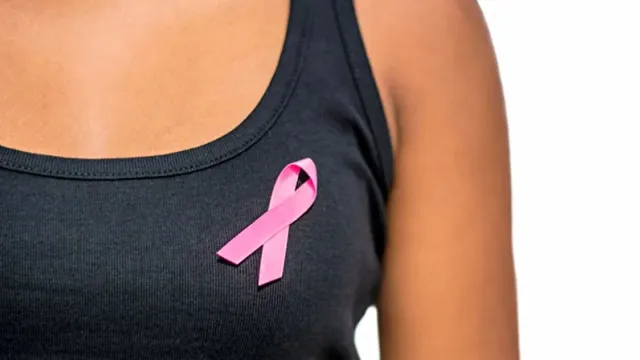Pfizer calls for regular screening for early breast cancer detection in Kenya

Pfizer calls for regular screening for early breast cancer detection in Kenya
Drugmaker Pfizer-BioNTech is calling on women to embrace regular screening to help early detection and treatment of cancer, one of the deadliest diseases in Kenya and the world.
Breast cancer is the leading type of cancer in Kenya, accounting for 16.1 percent of all cancers, and is the second leading cause of death in the country according to the World Health Organization’s International Agency for Research on Cancer, Global Cancer Observatory.
Currently, the cases of breast cancer per year in Kenya stand at over 6,700.
Speaking during a virtual round table meeting, Medical Director East and Anglo West Africa at Pfizer, Dr Kodjo Soroh, said the company has a long history in oncology research and development, which includes a pivotal role in scientific breakthroughs and medicines.
“The advantages of early detection of cancer cannot be overemphasized. We must step up efforts to drive regular medical check-ups to facilitate early detection,” Dr Soroh said.
“Our current focus remains on innovating and improving oncology therapies to potentially cure non-communicable diseases like cancer.”
Data from the Kenya National Cancer Registry 2014-2019 shows that seven out of ten cancer cases of the disease are diagnosed at advanced stages.
Similarly, the statistics demonstrate that timely diagnosis and effective treatment of early-stage tumors are the cornerstones of breast cancer control.
According to the 2014 Kenya Demographic Health Survey, only 14 percent of women in the country have had a clinical breast examination while 25 percent have performed a self-breast examination.
Read also: Alarm as 100 monkeypox cases are reported in 12 countries
Dr Angela McLigeyo, a Medical Oncologist said: “Unless urgent action is taken to improve breast cancer screening and early diagnosis, the disease will compound Kenya’s disease burden, increase poverty and gender inequalities.”
The National Cancer Treatment Protocols 2019 recommended that all women found to have suspicious breast lesions should undergo a triple assessment that involves clinical examination preferably by an experienced clinician or breast surgeon, bilateral breast imaging, and core biopsy.
“In breast cancer diagnosis, timeliness of the service to avoid excessive delay, availability of diagnostic imaging studies of the breast and axilla, staging studies to detect metastatic disease and tissue sampling methods are important,” said Dr Njoki Njiraini, a clinical radiation oncologist at The Nairobi Hospital.
Kenya has established a breast cancer screening and early diagnosis action plan 2021-2025 aimed at ensuring that women with breast cancer are diagnosed at early stages.
The action plan will be achieved by putting in specific mechanisms to improve the uptake of mammography screening in the eligible populations.
It will also ensure that at least 90 percent of symptomatic women are linked to timely further evaluation and management within 60 days from their first encounter with a healthcare worker.
Meanwhile, the US-based pharmaceutical firm will now sell its patented drugs on a not-for-profit basis to the world’s poorest countries as part of a new initiative revealed at the World Economic Forum in Davos.
“An Accord for a Healthier World” focuses on five areas: infectious diseases, cancer, inflammation, rare diseases, and women’s health; where Pfizer currently holds 23 patents, including the likes of Comirnaty and Paxlovid, its Covid vaccine, and oral treatment," Angela Hwang, Pfizer Biopharmaceuticals Group president told AFP.
She added that “this transformational commitment will increase access to Pfizer-patented medicines and vaccines available in the US and the European Union to nearly 1.2 billion people.”
Developing countries experience 70 percent of the world’s disease burden, including cancer-related mortality rates, which are also far higher in low and middle-income countries, causing more fatalities in Africa every year than malaria.
Hwang acknowledged that even an at-cost approach could be challenging for the most cash-strapped countries, and “this is why we have reached out to financial institutions to brief them on the Accord and ask them to help support country-level financing.”
Pfizer will also reach out to other stakeholders including governments, multilateral organizations, NGOs, and even other pharmaceuticals to ask them to join the Accord.



